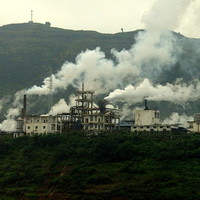Unless you have been living under a rock, the news that China has become the world's top energy consumer should not have been surprising. For some years now, China has been steadily marching up the global energy consumer rankings, an ascension that was expedited by the severity of the recession's impact in the U.S.
The International Energy Agency (IEA), whose data confirmed the dubious milestone, called it a "new age in the history of energy." Even if it is not entirely surprising, the news does beg further analysis because of its implications for global energy markets and international affairs.
It helps to first examine the strategy that Beijing has developed to deal with spiking energy demand and insufficient domestic production, a strategy that counts three key components: securing access to and acquiring material reserves, securing access to and gaining production positions in oil projects, and doing both with an overarching aim to diversifying their sources of supply. In simple terms, they are working to assure that all of their oil reserve and production eggs aren't in the same basket.

